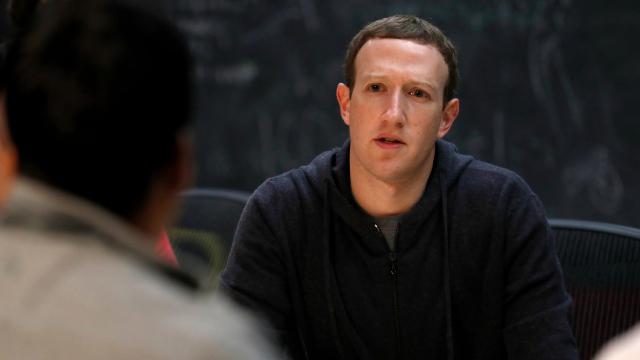Facebook, which landed itself in the crosshairs after becoming one of the primary venues by which US federal prosecutors allege a Kremlin-linked, pro-Donald Trump Russian operation called the Internet Research Agency tried to flood the US with disinformation and propaganda before the 2016 elections, now says it will verify the identities of people who buy election-related ads by mailing postcards.
Per Reuters, Facebook says the process will involve any advertising that mentions a specific candidate, but not general issue-based ads:
The process of using postcards containing a specific code will be required for advertising that mentions a specific candidate running for US federal office, Katie Harbath, Facebook’s global director of policy programs, said. The requirement will not apply to issue-based political ads, she said.
“If you run an ad mentioning a candidate, we are going to mail you a postcard and you will have to use that code to prove you are in the United States,” Harbath said at a weekend conference of the National Association of Secretaries of State, where executives from Twitter Inc and Alphabet Inc’s Google also spoke.
“It won’t solve everything,” Harbath said in a brief interview with Reuters following her remarks.
According to Reuters, Facebook says the mailers are the best solution they could come up with and that they would be in use before the 2018 midterm US elections scheduled for November.
Though Russian groups purchased around $US100,000 in ads on Facebook, it also produced a much larger array of unpaid content for the site that eventually reached up to 126 million Americans on Facebook and 20 million on subsidiary site Instagram – a number that sounds large, but is also “a tiny share of the 33 trillion posts Americans saw in their Facebook news feeds between 2015 and 2017,” the Washington Post noted. The share that were reached by the Russian-paid ads came in at just 10 million of that total.
Federal law prohibits foreign entities from making any kinds of expenditures or contributions towards any electoral campaign in the US, as well as requires candidate committees, party committees, and political action committees to disclose how they spend money (though growing amounts of dark money spending by non-profit groups that don’t have to disclose their donors is increasingly an issue).
According to the Washington Post, however, Facebook’s terms of service stipulate that advertisers have responsibility for “understanding and complying with all applicable laws and regulations.” As news of the alleged Russian operation has alarmed legislators, some commentators have characterised its response as intended to prevent any fix that could affect its highly profitable and largely automated targeted ad model. For years, Bloomberg reported, Facebook has long sought Federal Election Commission exemptions from political advertising disclosure, and its policy of leaving compliance to ad buyers has helped it “generate hundreds of millions of dollars in political campaign spots.”
Since the new policy apparently only applies to ads directly mentioning candidates by name, it would apply to many but not all of the ads purchased by the Russian group during the election season.
News of the postcard announcement may have been briefly overshadowed, however, by Trump’s decision to retweet a Facebook advertising executive who had tried to distance the Russian operation from the outcome of the elections.
[Reuters]
